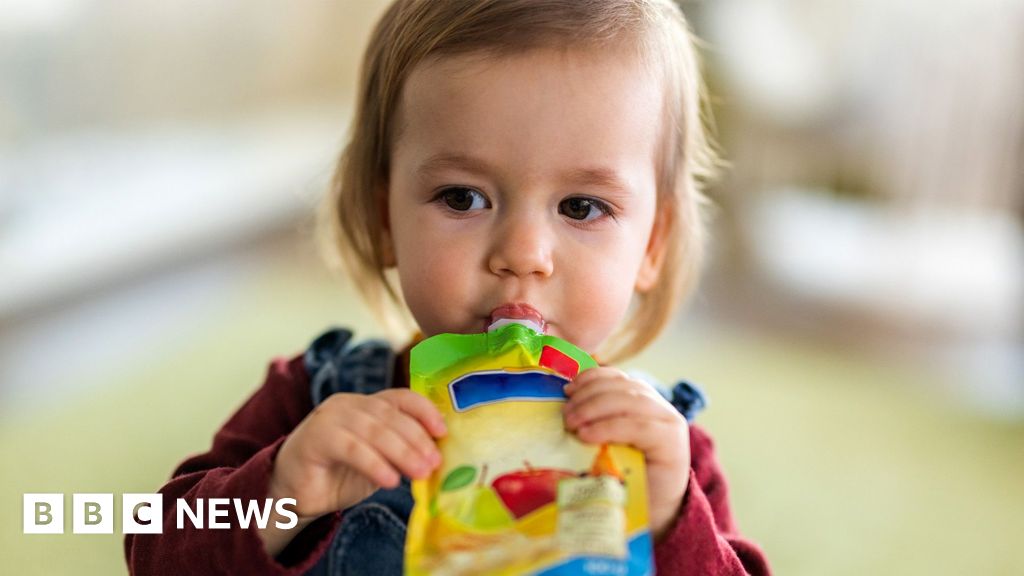ARTICLE AD BOX
By Divya Talwar
UK Insight
WATCH: Hiral Varsani says she was traumatised by her treatment during the birth of her first child
Black and Asian women are being harmed by racial discrimination in maternity care, according to an inquiry.
The year-long investigation into "racial injustice" was conducted by the charity Birthrights.
Women reported feeling unsafe, being denied pain relief, facing racial stereotyping about their pain tolerance, and microaggressions.
The government has set up a taskforce to tackle racial disparities in maternity care.
Hiral Varsani says she was traumatised by her treatment during the birth of her first child.
The 31-year-old from north London developed sepsis - a potentially life-threatening reaction to an infection - after her labour was induced, which she says was only spotted after a long delay.
"I was shivering, my whole body was aching, my heart was beating really fast and I felt terrible. But everyone kept saying everything was normal," she says.
"It was almost 24 hours later before a doctor took my bloods for the first time and realised I was seriously ill."
Hiral had an emergency C-section and her daughter was taken into intensive care after also contracting sepsis.
She believes her race played a role in her care: "I experienced microaggressions and was stereotyped because of the colour of my skin.
"The staff would say 'hello princess', and while I was having contractions in a corridor a midwife walked past and said, 'Oh, you're definitely going to need an epidural'. I had never even met her before.
"I was repeatedly ignored, they just thought I was a weak little Indian girl, who was unable to take pain."
'Bleed to death'
While death in pregnancy or childbirth is very rare in the UK, there are stark racial disparities in maternal mortality rates.
Black women are more than four times more likely to die in pregnancy or childbirth than white women in the UK, while women from Asian backgrounds face almost twice the risk.
Tinu Alikor was terrified she would become one of those statistics when she gave birth to her daughter 14 months ago.
Tinu Alikor feared she might die while pregnant with her daughter
The mother-of-three from Kent says she was "mistreated and unheard" during her maternity care each time, but says her most recent experience was perhaps the worst.
During Tinu's second trimester, she had heavy, unexplained bleeding, and said she begged for an examination.
"The blood was getting worse, I was scared, I thought I was losing my baby. I've have had two miscarriages before.
"The doctors refused to examine me and just said I had a UTI. I was told I still had four days till the end of my antibiotics course, and I remember saying, 'four days to what - till I bleed to death'?"
When Tinu was eventually examined, she was immediately taken to hospital because of a serious bleed coming from her bladder, and she needed several blood transfusions.
"If I had not have been hospitalised, I don't think I'd be sitting here right now. And I don't think my daughter would be. I've met some amazing midwives and doctors but I think all my experiences in my pregnancies and labour have been tainted by my race.
"With all three of my labours, I wasn't given any pain relief. I had to beg for it during my first two births, and even then, I was only ever given gas and air.
"Racial stereotyping has got a lot to do with it. There is an assumption that black women have a higher pain tolerance. I don't know where this comes from. It doesn't hurt any less because I'm black."
'Smells of curry"
The Birthrights investigation - supported by the law firm Leigh Day - found common themes across the testimony it heard. These included:
- Black and brown women reported feeling physically and psychologically unsafe during their care
- Health care professionals failed to recognise serious medical conditions such as jaundice in black babies because "white bodies" were considered the norm
- Women described racial stereotyping, microaggressions and assumptions - leading to distress and trauma. One of the most common experiences was that of black, brown and mixed ethnicity women reporting pain relief being denied or delayed because of racist stereotypes, including black women's perceived ability to tolerate pain and Asian women's perceived inability to cope with pain
- There were many accounts of women and staff hearing Asian women being referred to as "princesses" or "precious" and black women as "aggressive" or "angry"
- Some women and health care professionals shared examples of overt racism, such as hearing staff saying that black women and babies have "thick, tough skin", that the ward "smells of curry" when south Asian families were being cared for, and that Chinese people are "dirty"
Melissa Brown, a midwife and officer for Birthrights, said maternity services were facing immense challenges.
"We did hear positive examples of maternity care, but there is racism and racial discrimination at a structural and individual level which is putting black, brown and mixed ethnicity women at harm. There are many complex reasons for poorer health outcomes for ethnic minorities, and racism and discrimination is definitely playing a role."
The Birthrights report - which will be sent to MPs - highlights the need for urgent action, including training for health care professionals which highlights diversity.
A Department of Health and Social Care spokesperson said the Maternity Disparities Taskforce would "level up maternity care for all women".
"It will address factors linked to unacceptable disparities in quality of care, experiences and outcomes."

 3 years ago
63
3 years ago
63








 English (US) ·
English (US) ·